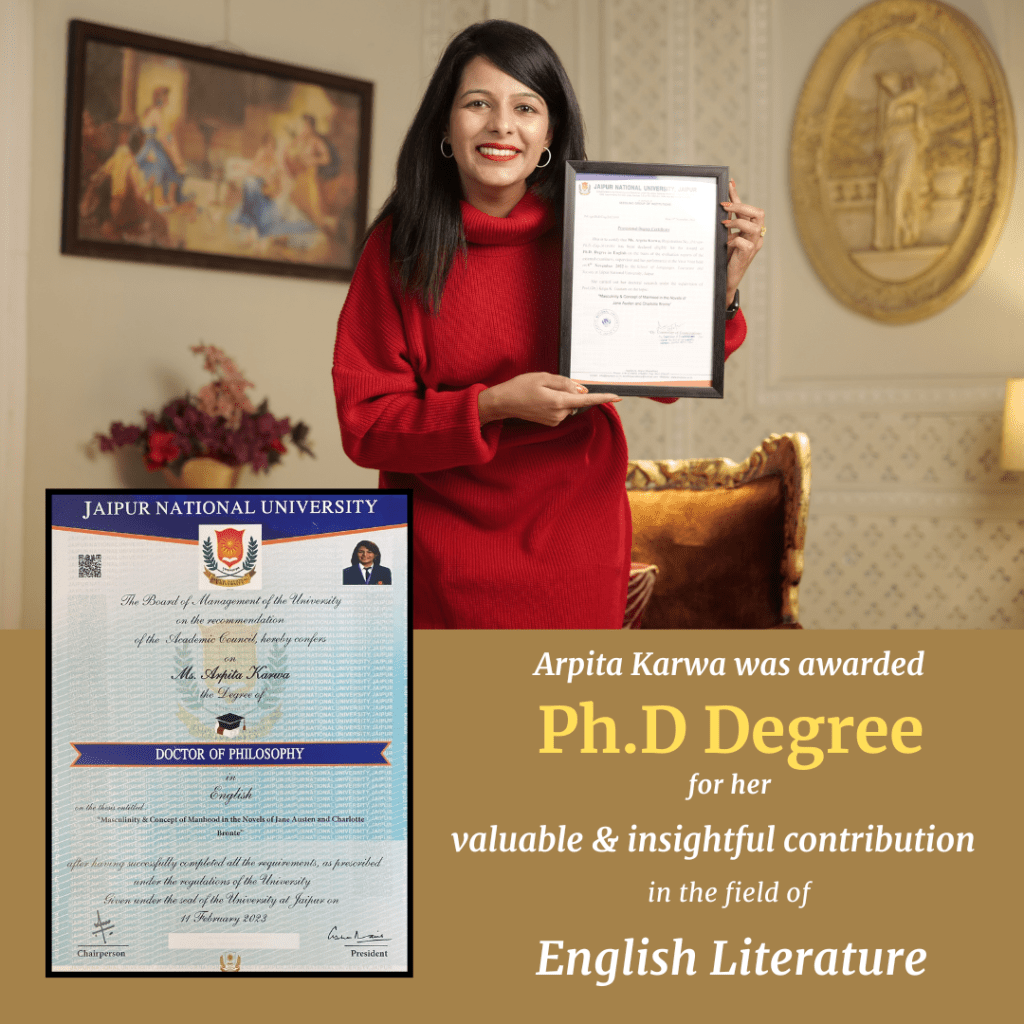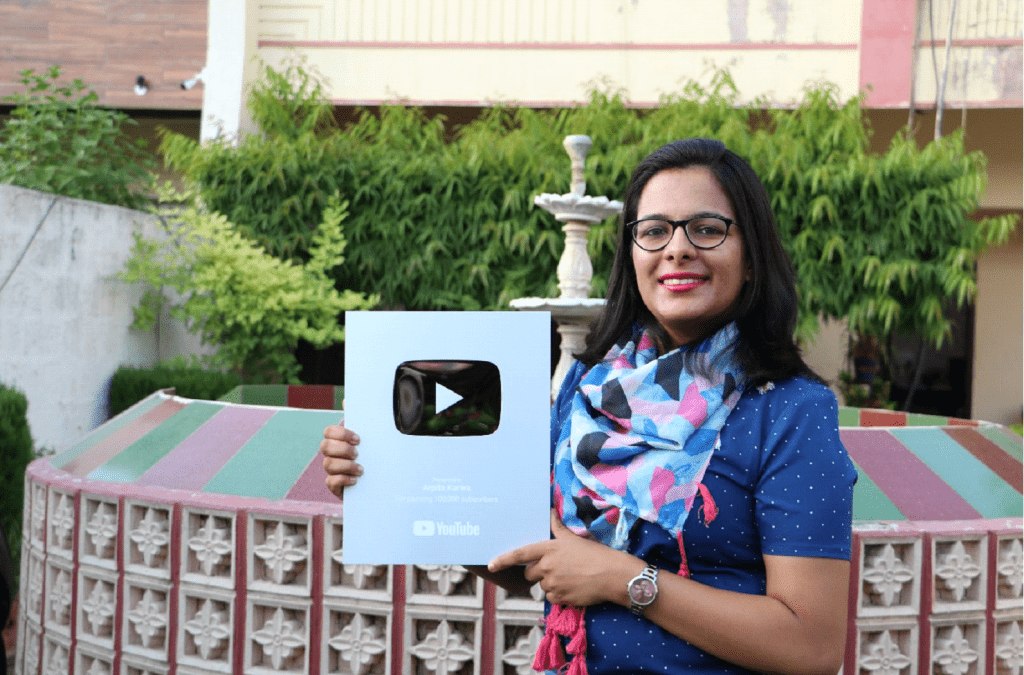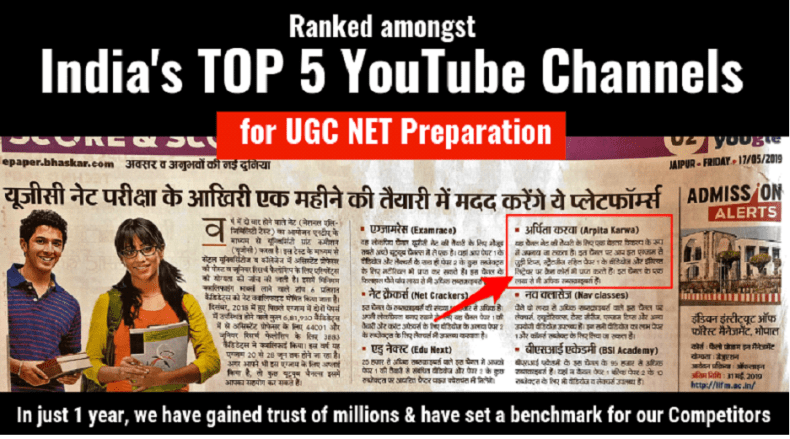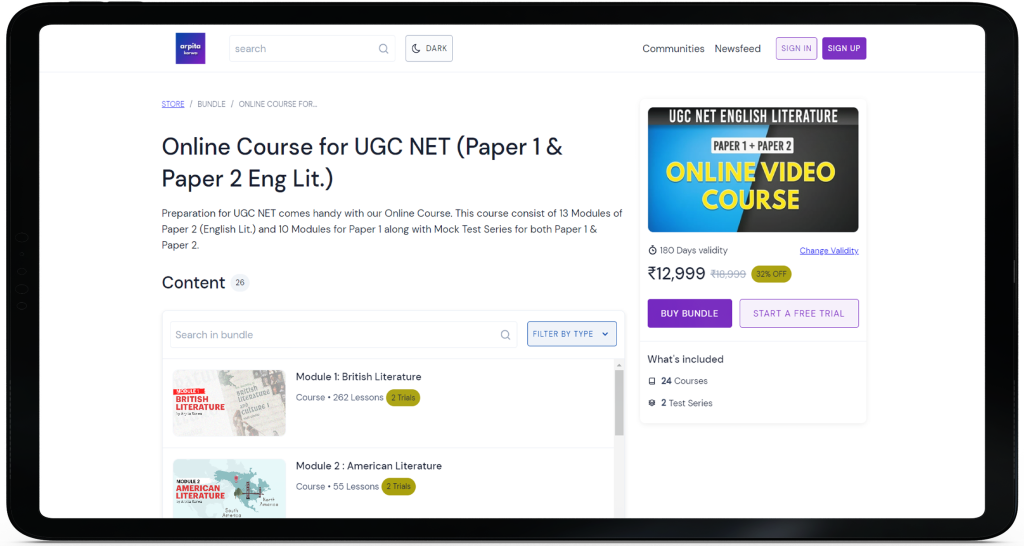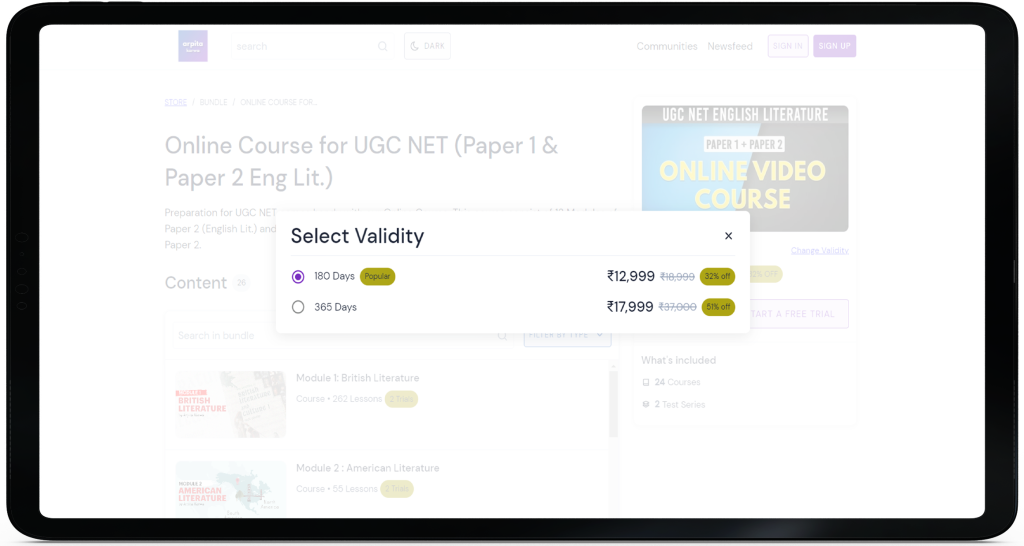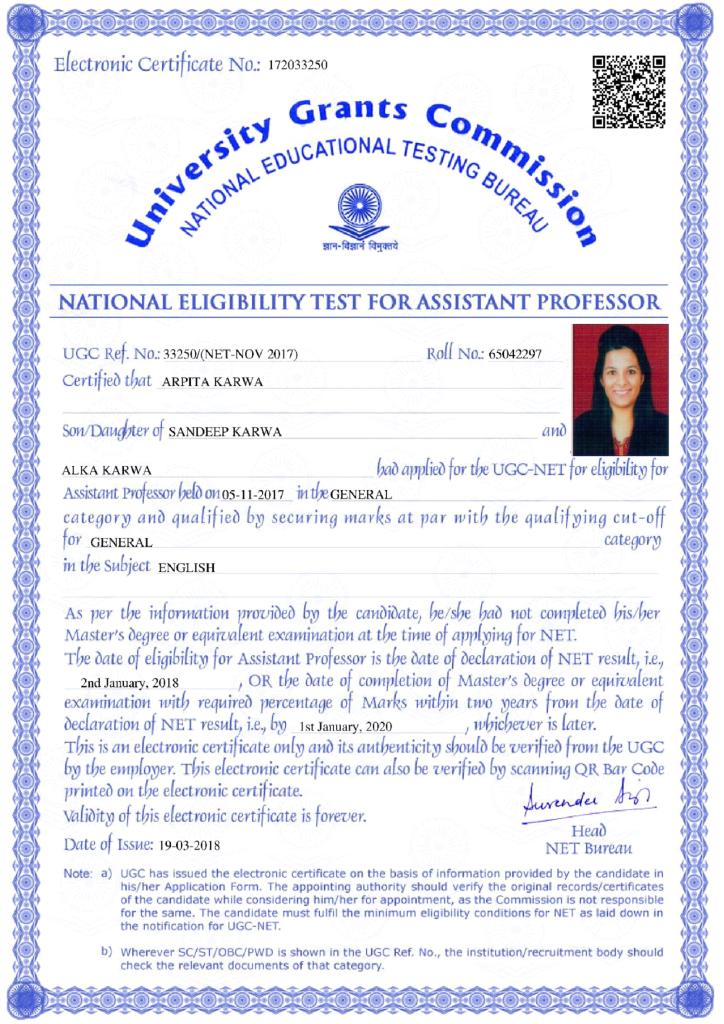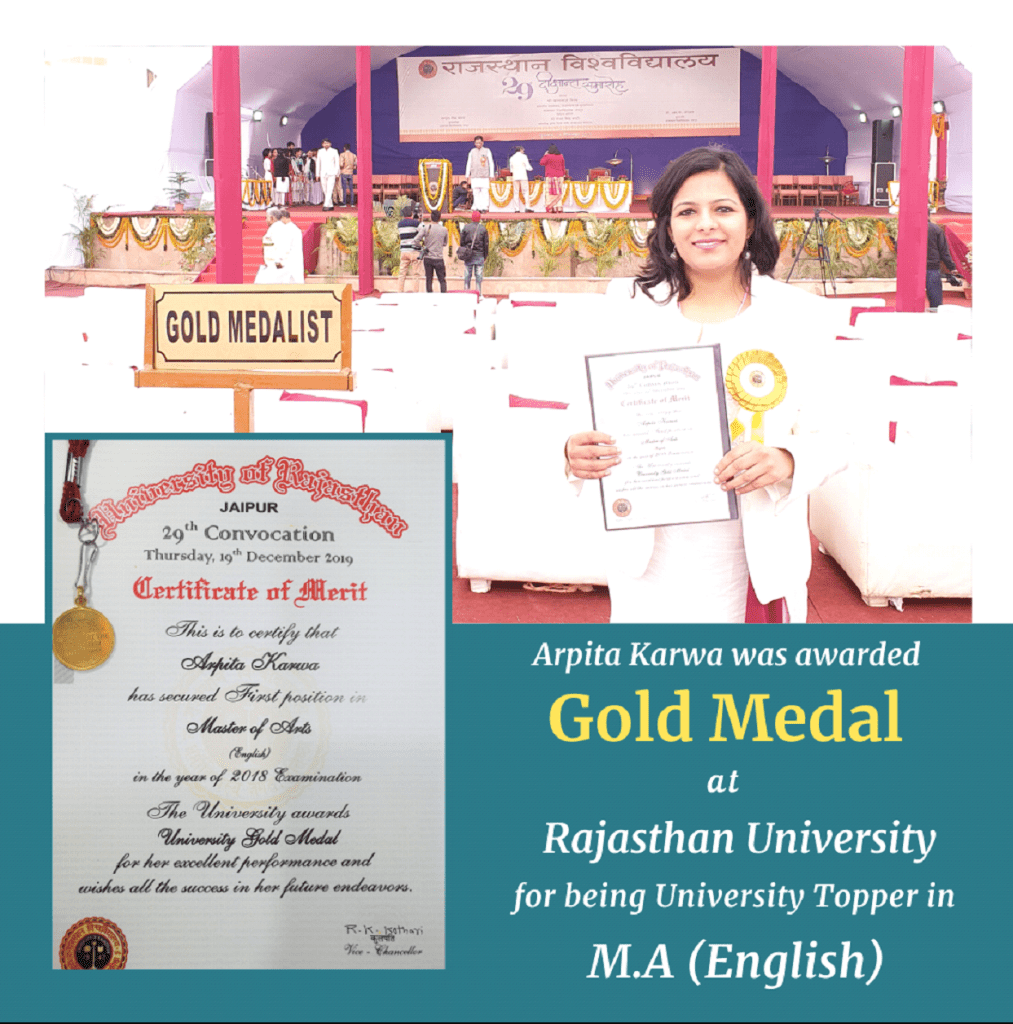UGC NET Paper 1 September 2020 (Conducted on 24th Sep 2020 : Evening Shift)
October 18, 2022 2025-08-18 13:39UGC NET Paper 1 September 2020 (Conducted on 24th Sep 2020 : Evening Shift)
September 2020: Paper 1 (Conducted on 24th Sep 2020 : Evening Shift)
Q.1) Ashtadhyayi was written by
[1] Chanakya
[2] Jivaka
[3] Katyayana
[4] Panini
Correct Answer: 4
Q.2) Match the column:
List I
A. Mode 1 – Cross border supply
B. Mode 2 – Consumption abroad
C. Mode 3 – Commercial presence
D. Mode 4 – Movement of natural persons
List II
I. Professors teachers and researchers working abroad on a temporary on a temporary basis
II. Language training companies, local university and Satellite campuses
III. Distance education, Virtual education, corporate training through ICT
IV. A student travels to another country to enroll in a course of study/degree programme
Options:
[1] A-IV B-I C-III D-II
[2] A-III B-IV C-II D-I
[3] A-II B-III C-I D-IV
[4] A-I B-II C-IV D-III
Correct Answer: 2
Q.3) The Sustainable Development Goals (SDGs) set in 2015 by the United Nations are intended to be achieved by
[1] 2025
[2] 2030
[3] 2035
[4] 2040
Correct Answer: 2
Q.4) National Programme for Technology Enhanced Learning (NPTEL) was initiated by the MHRD in 2003 to enhance the quality in
[1] Medical education
[2] Agriculture education
[3] Engineering education
[4] Legal education
Correct Answer: 3
Q.5) Which of the following areas of liberal education at the higher level in the feudal society of Europe were classified under quadrivium?
A. Grammar
B. Logic
C. Arithmetic
D. Astronomy
E. Music
[1] ABC
[2] BCD
[3] CDE
[4] ADE
Correct Answer: 3
Q.6) From disaster mitigation measures given below, identify the measures which can be characterized as non-structural
A. Flood dykes
B. Land-use zoning
C. Raising of homes in flood-prone areas
D. Insurance programmes
E. Reinforce tornado safe rooms
[1] BD
[2] ABD
[3] BDE
[4] ABDE
Correct Answer: 1
Q.7) Assertion A: A windmill with proper design considerations can be made to operate at efficiencies in the range 60% to 65%
Reason R: The efficiency of the windmill depends on its design parameters
[1] Both A and R are correct and R is the correct explanation of A
[2] Both A and R are correct but R is NOT the correct explanation of A
[3] A is correct but R is not correct
[4] A is not correct but R is correct
Correct Answer: 4
Q.8) Identify the correct sequence of countries in decreasing order of their contribution to global carbon dioxide emissions
A. USA
B. China
C. Russia
D. India
E. Japan
[1] ABDCE
[2] BADCE
[3] BADEC
[4] ABDEC
Correct Answer: 2
Q.9) Match the column:
List I
A. Carbon dioxide
B. Carbon monoxide
C. Nitrogen oxides
D. Benzene and hydrocarbons
List II
I. Formation of acid rain
II. Toxic and are carcinogenic
III. Toxic and can cause respiratory diseases
IV. Contribution to global warming as a greenhouse gas
[1] A-IV B-III C-I D-II
[2] A-IV B-II C-I D-III
[3] A-IV B-II C-III D-I
[4] A-I B-III C-II D-IV
Correct Answer: 1
Q.10) Under Goal 4 of Millennium Development Goals, the reduction sought to be achieved in under- five child mortality rate between 1990-2015 was to the extent of
[1] Half
[2] Two-third
[3] Three-fourth
[4] One-third
Correct Answer:2
Q.11) A-F system is used in which of the following number systems?
[1] Binary
[2] Octal
[3] Hexa – Decimal
[4] Decimal
Correct Answer: 3
Q.12) Assertion A: Nowadays many online courses are available and their popularity is increasing
Reason R: Selecting the right course from many such, is a big challenge.
[1] Both A and R are correct and R is the correct explanation of A
[2] Both A and R are correct but R is NOT the correct explanation of A
[3] A is correct but R is not correct
[4] A is not correct but R is correct
Correct Answer: 2
Q.13) Which of the following is a data visualization method?
[1] Line
[2] Circle and Triangle
[3] Pie chart and Bar chart
[4] Pentagon
Correct Answer: 3
Q.14) Computer hardware consists of
[1] Computer table
[2] Monitor and CPU
[3] Software
[4] Google
Correct Answer: 2
Q.15) What is the full form of the abbreviation BIOS?
[1] Big Information Online System
[2] Binary Input Output Software
[3] Basic Input Output System
[4] Binary Inner Open Software
Correct Answer: 3
I.16-20) Based on the data in the table, answer the questions that follow
Consider the following table which contains year-wise data of installed Renewable Energy capacity for four countries (X, Y, Z, T) over a period of 5 years from 2015 to 2019.
Year\Country | X | Y | Z | T |
2015 | 10 | 15 | 08 | 12 |
2016 | 13 | 18 | 10 | 13 |
2017 | 15 | 20 | 12 | 15 |
2018 | 20 | 20 | 15 | 18 |
2019 | 22 | 24 | 20 | 20 |
Q.16) Between 2016 to 2017, which country registered maximum growth (%) in installed capacity of Renewable Energy?
[1] X
[2] Z
[3] Y
[4] T
Correct Answer: 2
Q.17) Which country registered maximum growth (%) by 2019 with reference to year 2015?
[1] Z
[2] T
[3] X
[4] Y
Correct Answer: 1
Q.18) For the country ‘Y’, what is the average annual growth (%) of Renewable Energy capacity?
[1] ~10.85 %
[2] ~12.77%
[3] ~13.25%
[4] ~11.65%
Correct Answer: 2
Q.19) In any given year, compared to the previous year which country(s) registered maximum growth (%)?
[1] T
[2] Z and Y
[3] Y
[4] X and Z
Correct Answer: 4
Q.20) Taking all four countries together, what is the over-all increase (%) in installed capacity of Renewable Energy in the year 2019, with reference to 2015?
[1] 52.32%
[2] 91.11%
[3] 117.32%
[4] 121.81%
Correct Answer: 2
Q.21) Which one of the following decides the figure of a categorical proposition?
[1] Major term
[2] Minor term
[3] Middle term
[4] Copula
Correct Answer: 3
Q.22) Quantity and quality of a categorical proposition decide.
[1] Validity
[2] Invalidity
[3] Mood
[4] Figure
Correct Answer: 3
Q.23) Assertion A: If there is a contestation between Sruti and Smriti, Sruti prevails over Smriti.
Reason R: Sruti represents the philosophical aspect of the Vedas and Upanishads, while Smriti is an application of the philosophical ideas.
[1] Both A and R are correct and R is the correct explanation of A
[2] Both A and R are correct but R is NOT the correct explanation of A
[3] A is correct but R is not correct
[4] A is not correct but R is correct
Correct Answer: 1
Q.24) Assertion A: All perceptions seem entirely loose and separate. They are conjoined but not necessarily connected
Reason R: Since the perception of hardness is not necessarily connected with its colour, it can be said that perceptions are loosely connected.
[1] Both A and R are correct and R is the correct explanation of A
[2] Both A and R are correct but R is NOT the correct explanation of A
[3] A is correct but R is not correct
[4] A is not correct but R is correct
Correct Answer: 1
Q.25) Assertion A: Substance is self-caused, self-conceived and self-existent
Reason R: Substance is not caused by other causal sources but is conceived by something else and is also existent on that.
[1] Both A and R are correct and R is the correct explanation of A
[2] Both A and R are correct but R is NOT the correct explanation of A
[3] A is correct but R is not correct
[4] A is not correct but R is correct
Correct Answer: 3
Q.26) What is the next term in the following letter series?
aceg, cegi, egik, gikm, __
[1] jlor
[2] hjlo
[3] ikmo
[4] ikmgq
Correct Answer: 3
Q.27) Two water pipes can fill a tank in 10 minutes and 15 minutes, respectively, if each of them is used separately. If both the pipes are used to fill the tank simultaneously, how long will it take to fill the tank?
[1] 6 minutes
[2] 8 minutes
[3] 7.5 minutes
[4] 9 minutes
Correct Answer: 1
Q.28) Consider the following number series
0, 6, 24, 60, 120, X
What is the value of term X?
[1] 180
[2] 210
[3] 240
[4] 156
Correct Answer: 2
Q.29) A rational number has its denominator greater than fts numerator by 6. If the numerator is increased by 4 and the denominator is decreased by 8, the number becomes 5/3. What is the original rational number?
[1] 11/17
[2] 5/11
[3] 7/13
[4] 13/19
Correct Answer: 1
Q.30) A man covers a distance of 22 km in 4 hours by initially walking and then jogging at speed of 4 km/hour and 10 km/hour, respectively. The distance covered by him during walking is
[1] 10 km
[2] 12km
[3] 15km
[4] 18 km
Correct Answer: 2
Q.31) Statement I: Signs and symbols have internal relations to produce meanings
Statement II: This is possible because of a network of signs through such relations.
[1] Both Statement I and Statement Il are true
[2] Both Statement I and Statement Il are false
[3] Statement I is true but Statement Il is false
[4] Statement I is false but Statement Il is true
Correct Answer: 1
Q.32) Match the column:
List I
A. Semantic
B. Psychological
C. Personal
D. Physical
List II
I. Lack of physical clarity in channel
II. Faulty message
III. Poor retention
IV. Lack of time
[1] A-I B-II C-III D-IV
[2] A-II B-III C-IV D-I
[3] A-III B-IV C-I D-II
[4] A-IV B-I C-II D-III
Correct Answer: 2
Q.33) Assertion A: Allowing an issue to fester will contribute to effective communication
Reason R: A good communicator will address an issue in the classroom before it becomes precarious.
[1] Both A and R are true and R is the correct explanation of A
[2] Both A and R are true but R is NOT the correct explanation of A
[3] A Is true but R is false
[4] A is false but R is true
Correct Answer: 4
Q.34) Classroom communication is
A. Goal-oriented
B. Style-centric
C. Collaborative
D. Vertical
E. Non-Rhetorical
[1] AB
[2] BD
[3] AC
[4] DE
Correct Answer: 3
Q.35) When communication enhances the interaction of learners, it is
[1] Physiological
[2] Psychological
[3] Artistic
[4] Transient
Correct Answer: 2
36-40) Read RC Passage to Answer:
In the narrowest sense, price is the amount of money charged for a product or a service. More broadly, price is the sum of all the values that customers give up to gain the benefits of having or using a product or service. Historically, price has been the major factor affecting buyer choice. In recent decades, however, nonprice factors have gained increasing importance. Even so, price remains one of the most important elements that determines a firm’s market share and profitability.
Price is the only element in the marketing mix that produces revenue; all other elements present costs. Price is also one of the most flexible marketing mix elements. Unlike product features and channel commitments, prices can be changed quickly. At the same time, pricing is the number one problem facing many marketing executives, and many companies do not handle pricing well. Some managers view pricing as a big headache, preferring instead to focus on other marketing mix elements. However, smart managers treat pricing as a key strategic tool for creating and capturing costumer value. Prices have a direct impact on a firm’s bottom line. A small percentage improvement in price can generate a large percentage increase in profitability. More important, as part of a company’s overall value proposition, price plays a key role in creating customer value and building customer relationships. “Instead of running away from pricing,” says an expert, “savvy marketers are embracing it”.
The price the company charges will fall somewhere between one that is too low to produce a profit and one that is too high to produce any demand. It summarizes the major considerations in setting price. Customer perceptions of the product’s value set the ceiling for prices. If customers perceive that the product’s price is greater that its value, they will not buy the product. Likewise, product costs set the floor for prices. If the company prices the product below its costs, the company’s profits will suffer. In setting its price between those two extremes, the company must consider several external and internal factors, including competitors’ strategies and prices, the overall marketing strategy and mix, and nature of the market and demand.
Q.36) Historically price was considered important because
[1] Sellers were always benefitted
[2] Money was charged for product or service
[3] It provided options for buyers
[4] It promoted non-price factors
Correct Answer: 3
Q.37) Why is price different from other elements in the marketing mix?
[1] It offsets cost
[2] It generates revenue
[3] It is rigid in character
[4] It ensures channel commitment
Correct Answer: 2
Q.38) What is the perception of smart managers regarding pricing?
[1] It is a strategic tool for consumer value
[2] It invites issues
[3] It is better to focus on other elements in the marketing mix
[4] it is of indirect value to the firm
Correct Answer: 1
Q.39) Which of the following is the major determinant of pricing for product or service?
[1] High demand
[2] Low demand
[3] Customer’s value perception
[4] Company’s quest for high profitability
Correct Answer: 3
Q.40) What are the other factors influencing or setting the price for products or services?
A. Competitors’ strategies
B. Over-all marketing mix
C. Type of market
D. Pricing from one extreme to the other
E. Predators pricing strategies
[1] ADE
[2] ABC
[3] CDE
[4] BCD
Correct Answer: 2
Q.41) Which of the following sampling techniques in research imply randomization and equal probability of drawing the units?
A. Quota sampling
B. Snowball sampling
C. Stratified sampling
D. Dimensional sampling
E. Cluster sampling
[1] AB
[2] BC
[3] CE
[4] DE
Correct Answer: 3
Q.42) Arrange the steps in hypothetico-deductive research in the correct sequence.
A. Identifying and defining a research problem
B. Defining the population and drawing a sub-set therefrom
C. Data collection using appropriate research tasks followed by data analyses
D. Hypothesis formulation and developing a design of research
E. Taking a decision on the substantive research hypothesis via testing of the Null hypothesis (Ho)
[1] ADBCE
[2] ABCDE
[3] ACBDE
[4] BACDE
Correct Answer: 1
Q.43) Match the column:
List I
A. Research problems
B. Research hypothesis
C. Sample of study
D. Research tools
List II
I. Devices using which data are gathered
II. A subset drawn from a defined set or universe
III. A tentative solution or answer to a research question
IV. The research question which has to be answered
[1] A-IV B-III C-II D-I
[2] A-III B-II C-I D-IV
[3] A-I B-II C-III D-IV
[4] A-III B-IV C-I D-II
Correct Answer: 1
Q.44) Statement I: All research adds to the corpus of knowledge by advancing a theory
Statement II: The focus of action research is basically on the amelioration of prevalent practices.
[1] Both Statement I and Statement Il are true
[2] Both Statement I and Statement Il are false
[3] Statement I is true but Statement II is false
[4] Statement I is false but Statement II is true
Correct Answer: 4
Q.45) A teacher proposes to find out the effect of praise and encouragement during a teaching- learning session based on Skinner’s theory of reinforcement. What type of research will it belong to?
[1] Fundamental research
[2] Evaluative research
[3] Action research
[4] Applied research
Correct Answer: 4
Q.46) Assertion A: Use of ICT is justified during teaching with a view to optimize learning outcomes
Reason R: Learning outcomes are contingent on use of ICT during teaching.
[1] Both A and R are correct and R is the correct explanation of A
[2] Both A and R are correct but R is NOT the correct explanation of A
[3] A is correct but R is not correct
[4] A is not correct but R is correct
Correct Answer: 3
Q.47) Match the column:
A. Nominal
B. Ordinal
C. Interval
D. Ratio
I. Classification and order
II. Classification, order and equal units
III. Classification, order, equal units and absolute zero
IV. Classification only
[1] A-I B-II C-III D-IV
[2] A-II B-I C-IV D-III
[3] A-III B-II C-IV D-I
[4] A-IV B-I C-II D-III
Correct Answer: 4
Q.48) Which of the following are said to be style-related competencies of an effective teacher?
A. Organized demeanour which means being orderly, clear and in control
B. Literacy which implies general knowledge as well as good at reading and writing
C. Self-efficacy which refers to a person’s self-perceived capacity to perform a task
D. Flexibility which means being sensitive and lenient
E. Evaluating and providing feedback
[1] AD
[2] BC
[3] CD
[4] DE
Correct Answer: 1
Q.49) From the following list of learner characteristics, identify those which are associated with ‘field independent’ learners:
A. Focuses on facts and principles
B. Perceives global aspects of concepts and materials
C. Prefers and likes to compete
D. Can organize information by himself/herself
E. Likes to cooperate
[1] ABC
[2] BCD
[3] ACD
[4] CDE
Correct Answer: 3
Q.50) The Phrase T-L model of teaching implies that
[1] Teaching and learning are independent acts
[2] Teaching and learning are integrally related acts
[3] Teaching aims at learning
[4] Teaching causes learning
Correct Answer: 2
















